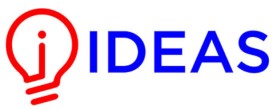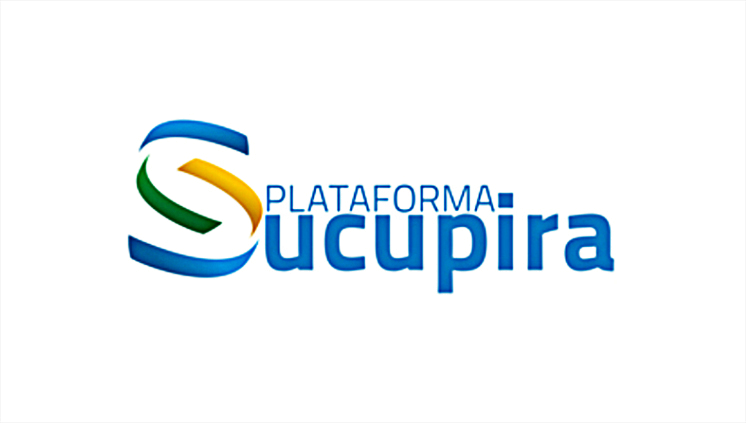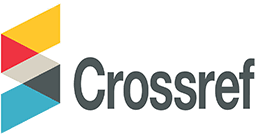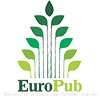Importance of meat for the global agri-food matrix
DOI:
https://doi.org/10.51896/ce.v22i1.461Keywords:
meat, food, agriculture, communityAbstract
The production and consumption of meat play a central and indispensable role for the global food regime, imposed on current societies by the hegemonic West through multilateral organizations such as the World Health Organization, WHO, the United Nations Organization for Food and Agriculture, FAO, the North Atlantic Treaty Organization, NATO, the Organization for Economic Cooperation and Development, OECD and the Economic Commission for Latin America, CEPAL. Meat production exerts a considerable influence that extends to various aspects, such as the loss of biodiversity and water sources, the deterioration of soils, water and air pollution, the systematic and widespread violation of human rights, the deterioration of local knowledge, traditional cuisine and the social fabric. This article highlights the crucial importance of meat to the global hegemonic agri-food matrix, exploring how its presence in the food chain not only shapes the agricultural industry, but also has significant ramifications for human health, the environment and society. as a whole. Although the discourse of multilateral organizations and States is that meat production, as well as its availability and accessibility, are key elements to address malnutrition and guarantee a balanced diet, what is promoted is hunger and malnutrition, especially in regions where other food sources are limited due to meat production.
Downloads
References
Agricultura, O. de las N. U. para la A. y la. (2018). El trabajo de la FAO sobre agroecología. https://www.fao.org/publications/card/es/c/I9021ES/
Ballestero, A. (2019). A Future History of Waternull. Duke University Press PP - Durham, NC. https://doi.org/10.1215/9781478004516
Boockhin, M. (1991). Agricultura Radical. In Ecología Libertaria (pp. 65–80). Madre Tierra.
Borck, C. (2018). Brainwaves: A Cultural History of Electroencephalographynull. Taylor & Francis. https://doi.org/10.4324/9781315569840
Borea, G., & Yahuarcani, R. (2020). Chapter 7 Amazonian Waterway, Amazonian Water-Worlds : Rivers in Government Projects and Indigenous Art. Taylor & Francis. https://doi.org/10.4324/9780367199005-9
Burgess, G. (n.d.). The League of Nations and the Refugees from Nazi Germany : James G. McDonald and Hitler’s Victims. Bloomsbury Academic PP - London. https://doi.org/10.5040/9781474276641
Caballero Lozada, M. F., Montoya Rendón, J. C., Agudelo Gómez, N. L., Sánchez Gómez, J. M., Arias Valencia, A. M., Hernández Orozco, G. A., Ortiz Medina, K., Posso Chaparro, M. I., Chica Velásquez, M. F., Hurtado Bolaños, H., & others. (2019). La Nueva Gestión Pública frente a los desafíos de Colombia en el siglo XXI.
CEPAL, FAO, & IICA. (2021). Perspectivas de la Agricultura y del Desarrollo Rural en las Américas: una mirada hacia América Latina y el Caribe 2021-2022. IICA. https://www.cepal.org/es/publicaciones/47208-perspectivas-la-agricultura-desarrollo-rural-americas-mirada-america-latina
de Marchi, S. (2021). Chapter Eat to remember. Gastronomical reconfigurations of hunger and imprisonment in contemporary Chinese literaturenull. Firenze University Press PP - Florence. https://doi.org/10.36253/978-88-5518-506-6.12
Delacruz Giraldo, G. N., Vélez Rivera, G., Montoya Rendón, J., & Caballero Lozada, M. F. (2018). Tercerización Laboral de los Corteros de Caña en el Sector Agroindustrial del Valle del Cauca y sus efectos sobre las Pensiones. https://repository.unilibre.edu.co/handle/10901/15663#.YoQHJNtUI-A.mendeley
Delaunay, C., Priadko, E., & Pieralli, C. (Eds.). (2017). Russia, Oriente slavo e Occidente europeo. Fratture e integrazioni nella storia e nella civiltà letteraria : Fratture e integrazioni nella storia e nella civiltà letteraria. Firenze University Press PP - Florence. https://doi.org/10.36253/978-88-6453-507-4
FAO. (2022). The State of Food and Agriculture 2022. https://www.fao.org/documents/card/en/c/cb9479en/
Fu, G., & Wang, X. C. (Eds.). (2021). Water-Wise Cities and Sustainable Water Systems : Concepts, Technologies, and Applications. IWA Publishing. https://doi.org/https://doi.org/10.2166/9781789060768
Giraldo-Díaz, R. (2011). Los adioses. Metáfora para la construcción de ciudadanía ambiental. Entramado, 7(2), 186–195. http://www.scielo.org.co/scielo.php?script=sci_arttext&pid=S1900-38032011000200012&lng=es&nrm=iso&tlng=
Giraldo-Díaz, R., Cabrera-Otálora, M. I., & Nieto-Gómez, L. E. (2022). Soberanía Alimentaria en América Latina y tenencia de la tierra en Colombia. Grupo Eumed.net, Universidad de Murcia. https://doi.org/10.5281/ZENODO.6702212
GRAIN, & La Vía Campesina. (2015). Cómo contribuye el sistema alimentario agroindustrial a la crisis climática. https://grain.org/es/article/entries/5161-como-contribuye-el-sistema-alimentario-agroindustrial-a-la-crisis-climatica
Hidalgo, F., Houtart, F., & Lizárraga, P. (2014). Agriculturas campesinas en Latinoamérica: Propuestas y desafíos (F. Hidalgo, F. Houtart, & P. Lizárraga, Eds.; IAEN – Ins). https://editorial.iaen.edu.ec/teachers/agriculturas-campesinas-en-latinoamerica-propuestas-y-desafios/
Hoag, C. (2022). The Fluvial Imagination : On Lesotho’s Water-Export Economy. University of California Press. https://doi.org/10.1525/luminos.134
Hodler, J., Kubik-Huch, R. A., & von Schulthess, G. K. (Eds.). (2020). Diseases of the Brain, Head and Neck, Spine 2020–2023 : Diagnostic Imaging. Springer Nature. https://doi.org/10.1007/978-3-030-38490-6
Iermanó, M. J. (2015). Sistemas mixtos familiares de agricultura y ganadería pastoril de la Región Pampeana: eficiencia en el uso de la energía y rol funcional de la agrobiodiversidad [Universidad Nacional de La Plata]. http://sedici.unlp.edu.ar/handle/10915/46343
Infante Lira, A. (2015). Faros agroecológicos, definición y caracterización a partir de la experiencia CET, Chile, para la difusión de sistemas agrarios sustentables. V Congreso Latinoamericano de Agroecología - SOCLA.
Juárez, N., Guerritsen, P., & Morales, J. (2018). Senderos hacia la soberanía alimentaria y el desarrollo rural sustentable: transitando hacia sistemas agroalimentarios sustentables en Jalisco. In P. Guerritsen, S. Rist, J. Morales, & N. Tapia (Eds.), Multifuncionalidad, sustentabilidad y buen vivir. Miradas desde Bolivia y México (Universida, pp. 175–216).
Kgabi, N., Irenge, D. I., Kabika, J., Kachunga, A., Kalola, M., Mbokoma, G. S., Mukendwa, H., Mulonda, K., Mwenya, T., Nyirenda, E., Reju, S. A., Wilson, B., & Woyessa, Y. (2020). Integrated Transboundary Water-Climate Management Toolsnull (N. Kgabi, Ed.). AOSIS PP - Durbanville. https://doi.org/10.4102/aosis.2020.BK205
Kimura, A. H. (2013). Hidden Hunger : Gender and the Politics of Smarter Foods. Cornell University Press PP - Ithaca, NY. https://doi.org/10.7591/cornell/9780801451645.001.0001
Krause, S., Beach, T., Luzzadder-Beach, S., Guderjan, T. H., Valdez, F., Eshleman, S., Doyle, C., & Bozarth, S. R. (2019). Ancient Maya wetland management in two watersheds in Belize: Soils, water, and paleoenvironmental change. Quaternary International, 502, 280–295. https://doi.org/https://doi.org/10.1016/j.quaint.2018.10.029
Makarov, S. N., Noetscher, G. M., & Nummenmaa, A. (Eds.). (2021). Brain and Human Body Modeling 2020 : Computational Human Models Presented at EMBC 2019 and the BRAIN Initiative® 2019 Meeting. Springer Nature. https://doi.org/10.1007/978-3-030-45623-8
Mansourian, S., Vira, B., & Wildburger, C. (Eds.). (2015). Forests and Food : Addressing Hunger and Nutrition Across Sustainable Landscapes. Open Book Publishers. https://doi.org/10.11647/OBP.0085
Mariolakos, I. D. (2018). Ancient Greece and water: Climatic changes, extreme events, water management, and rivers in ancient Greece. Handbook of Environmental Chemistry, 59, 3–30. https://doi.org/10.1007/698_2017_474
McCullagh, P. (2013). Ted Freeman and the Battle for the Injured Brain: A case history of professional prejudicenull. ANU Press PP - Canberra. https://doi.org/10.26530/OAPEN_459991
Nicholls, C. I., Altieri, M. A., & Vázquez, L. L. (2017). Agroecología: Principios para la conversión y el rediseño de sistemas agrícolas. Agroecología, 10(1 SE-Artículos), 61–72. https://revistas.um.es/agroecologia/article/view/300741
Noguera de Echeverri, A. (2016). Paisajes del desarrollo: evocación, rememoración, conmemoración y reencantamiento. In Voces del pensamiento ambiental. Tensiones críticas entre desarrollo y abya yala (pp. 69–122). Universidad Nacional de Colombia.
Noguera de Echeverri, A. (2020). Transiciones del desarrollo. Del mejor vivir al florecimiento de la vida. Buen vivir - Vivir Bien. Alcaldía de Tuquerres.
OCDE-FAO Perspectivas Agricolas 2016-2025. (2016). OECD. https://doi.org/10.1787/agr_outlook-2016-es
OECD, Food, & of the United Nations, A. O. (2022). OECD-FAO Agricultural Outlook 2022-2031. https://doi.org/https://doi.org/https://doi.org/10.1787/f1b0b29c-en
OECD-FAO. (2020). Agricultural Outlook 2020-2029. https://doi.org/10.1787/1112c23b-en
Pavlovic, M., Koumboulis, F. N., Tzamtzi, M. P., & Rozman, C. (2008). Role of automation agents in agribusiness decision support systems [Función de los agentes de automatización en los sistemas de apoyo a la toma de decisiones en agronegocios]. Agrociencia, 42(8), 913–923. https://www.scopus.com/inward/record.uri?eid=2-s2.0-59549092914&partnerID=40&md5=55d19458f54efa6e90f036115e2fbd20
Ramírez, M. A., Giraldo-Díaz, R., & Nieto-Gómez, L. E. (2019). Fundamentación ética del derecho a la soberanía alimentaria en Colombia. Cuestiones Constitucionales, 41, 475–495. https://revistas.juridicas.unam.mx/index.php/cuestiones-constitucionales/article/view/13955/15208
Real, A. (2009). La relación del ser humano y la naturaleza en Occidente (La pérdida del “ser”). XII Jornadas Interescuelas/Departamentos de Historia > Actas > Mesa 9.17, 24. https://cdsa.aacademica.org/000-008/1098
Ritzer, G. (1996). La McDonalización de la sociedad: un análisis de la racionalización en la vida cotidiana. In Ariel. Sociedad económica.
Roebroeks, W. (2007). Guts and Brains : An Integrative Approach to the Hominin Record. Leiden University Press. https://doi.org/10.24415/9789087280147
Sánchez, W., Giraldo-Díaz, R., & Nieto Gómez, L. E. (2020). Ecología Política de la agricultura, un ejercicio pleno de participación y democracia. In Agroecología para sanar las heridas de la guerra en comunidades afectadas por el conflicto político, social y armado en Colombia (pp. 21–38). Universidad Libre - Universidad Nacional de Colombia.
Sánchez-Jiménez, W., Giraldo-Díaz, R., Caballero-Lozada, M. F., Nieto-Gómez, L. E., Cabrera-Otálora, M. I., Montoya-Rendon, J. C., Martínez-Mora, D. P., Montoya Rendon, L. E., Panesso-Jiménez, F., DelaCruz-Giraldo, G. N., & others. (2018). Perspectivas del trabajo en la sociedad contemporánea desde la educación, la cultura y la sociedad. Universidad Libre de Cali. https://repository.unilibre.edu.co/handle/10901/15588
Sánchez-Jiménez, W., Giraldo-Díaz, R., & Cabrera-Otálora, M. I. (2022). La presencia del Nopal en la agricultura ancestral y la comida de los pueblos de América. https://doi.org/10.5281/ZENODO.6653422
Sánchez-Jiménez, W., Nieto-Gómez, L., Cabrera-Otálora, M. I., Panesso-Jiménez, F., & Giraldo-Díaz, R. (2020). La Comida de los pueblos y el sistema agroalimentario mundial. Criterio Libre Jurídico, 16(2), 56–74. https://doi.org/https://doi.org/10.18041/1794-7200/clj.2019.v16n2.6400
Scarborough, V. L. (1996). Reservoirs and watersheds in the central Maya lowlands. In The Managed mosaic : ancient Maya agriculture and resource use (pp. 304–314). University of Utah Press.
Tierras, D. E., Aguas, Y., & Fao, D. E. L. A. (1996). De La Tierra Y Su Uso Para La Agricultura Sostenible Y El Desarrollo Rural.
van der Ploeg, J. (2019). Imperios alimentarios, soberanía alimentaria y luchas sociales. Revista Latinoamericana de Estudios Rurales, 4(7), 165–187. http://www.ceil-conicet.gov.ar/ojs/index.php/revistaalasru/article/view/561/411
Published
How to Cite
Issue
Section
License

This work is licensed under a Creative Commons Attribution-NonCommercial 4.0 International License.
Usted es libre de:
- Compartir — copiar y redistribuir el material en cualquier medio o formato
- Adaptar — remezclar, transformar y construir a partir del material
Bajo los siguientes términos:
-
Atribución — Usted debe dar crédito de manera adecuada, brindar un enlace a la licencia, e indicar si se han realizado cambios. Puede hacerlo en cualquier forma razonable, pero no de forma tal que sugiera que usted o su uso tienen el apoyo de la licenciante.
-
NoComercial — Usted no puede hacer uso del material con propósitos comerciales.















